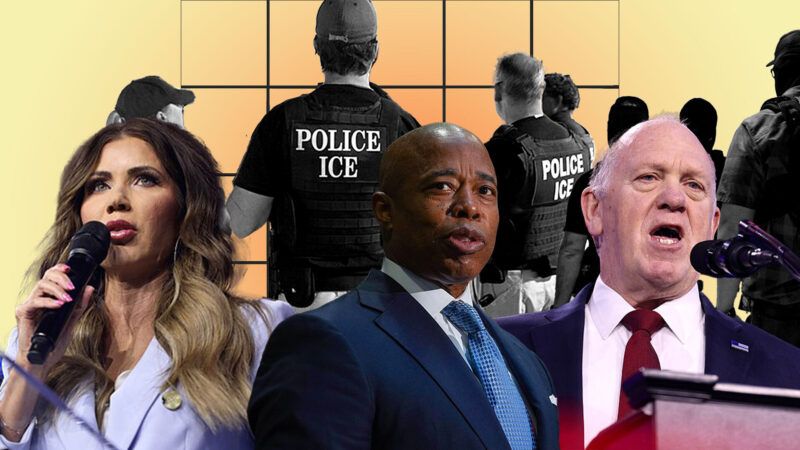Tom Homan's Plan To 'Flood the Zone' in Sanctuary Cities Will Lead to More Due Process Violations
DHS Secretary Kristi Noem and border czar Tom Homan blamed the shooting of an off-duty Customs and Border Protection officer on the policies of sanctuary cities like New York.

Sanctuary cities such as New York City and Los Angeles, which have long been a target of President Donald Trump for not adhering to his immigration enforcement policies, are now expected to face greater scrutiny from the federal government after a recent violent shooting.
On Saturday night, a 42-year-old off-duty Customs and Border Protection (CBP) officer was shot near Riverside Park in New York City, per CBS News. At a press conference on Sunday, Democratic Mayor Eric Adams and Police Commissioner Jessica Tisch stated that the officer, who is now in recovery, was sitting on the rocks with a friend in the park when two men on a moped approached them. Miguel Francisco Mora Nunez, a 21-year-old citizen of the Dominican Republic, whom the Department of Homeland Security (DHS) says was detained at the border for entering the U.S. illegally in 2023 but was subsequently released, allegedly dismounted the moped and approached the officer from behind while displaying a firearm. At this point, the officer "realized he was being robbed and drew his service weapon in defense," said Tisch, who cited CCTV footage in her statement. "The perp fired first, and an exchange of gunfire followed."
The officer was then hit in the forearm and face, while Mora, who was injured in his leg and groin, reportedly fled the scene on the moped along with the driver. He was apprehended Sunday at a Bronx hospital following surgery for his wounds. Mora was wanted for a robbery and stabbing in New York, and had prior arrests for assault and violating a protective order, plus a Massachusetts extradition warrant for kidnapping, according to CBS News.
Even though Tisch stated the New York Police Department has "no indication that the officer was targeted for his employment," the incident has galvanized the Trump administration to continue its crackdown on sanctuary cities in the United States.
"Make no mistake, this officer is in the hospital today, fighting for his life because of the policies of the mayor of this city and the City Council. And the people that were in charge of keeping the public safe, they refused to do so," DHS Secretary Kristi Noem said on Monday. While accusing Democrats of culpability in the attack, Noem managed a cry for help, urging "every single mayor, and sanctuary city, and sanctuary governor to change their policies and to change their tactics right now." Noem also claimed that a second suspect was in custody, but provided no details.
Border czar Tom Homan, a vocal critic of sanctuary cities, on Monday called them "sanctuaries for criminals."
"We're going to flood the zone," Homan said. "Sanctuary cities get exactly what they don't want: more agents in the community and more agents in the worksite."
In the second Trump administration, "flooding the zone" has led to the arrest of innocent civilians, racial profiling, and enhanced surveillance of Americans by law enforcement. In June, Los Angeles residents protested enhanced immigration enforcement in the city, leading to riots and the deployment of 2,000 California National Guard members and 700 Marines by Trump as a response. On Tuesday, Sen. Jeff Merkley (D–Ore.) and Rep. Suzanne Bonamici (D–Ore.) introduced bills in the Senate and House, respectively, to block further deployments of the National Guard and require law enforcement officials to identify themselves during operations.
The evidence on sanctuary cities runs counter to the Trump administration's claims about criminality. A 2017 study by the University of New Mexico found "no correlation between a sanctuary city and crime." Some research has linked sanctuary practices to a decrease in both property and violent crime over time because they integrate immigrants into society.
Despite this, the Trump administration appears ready to "flood the zone" of sanctuary cities, which will likely come at the cost of due process and constitutional protections for immigrants and citizens alike.


Show Comments (49)